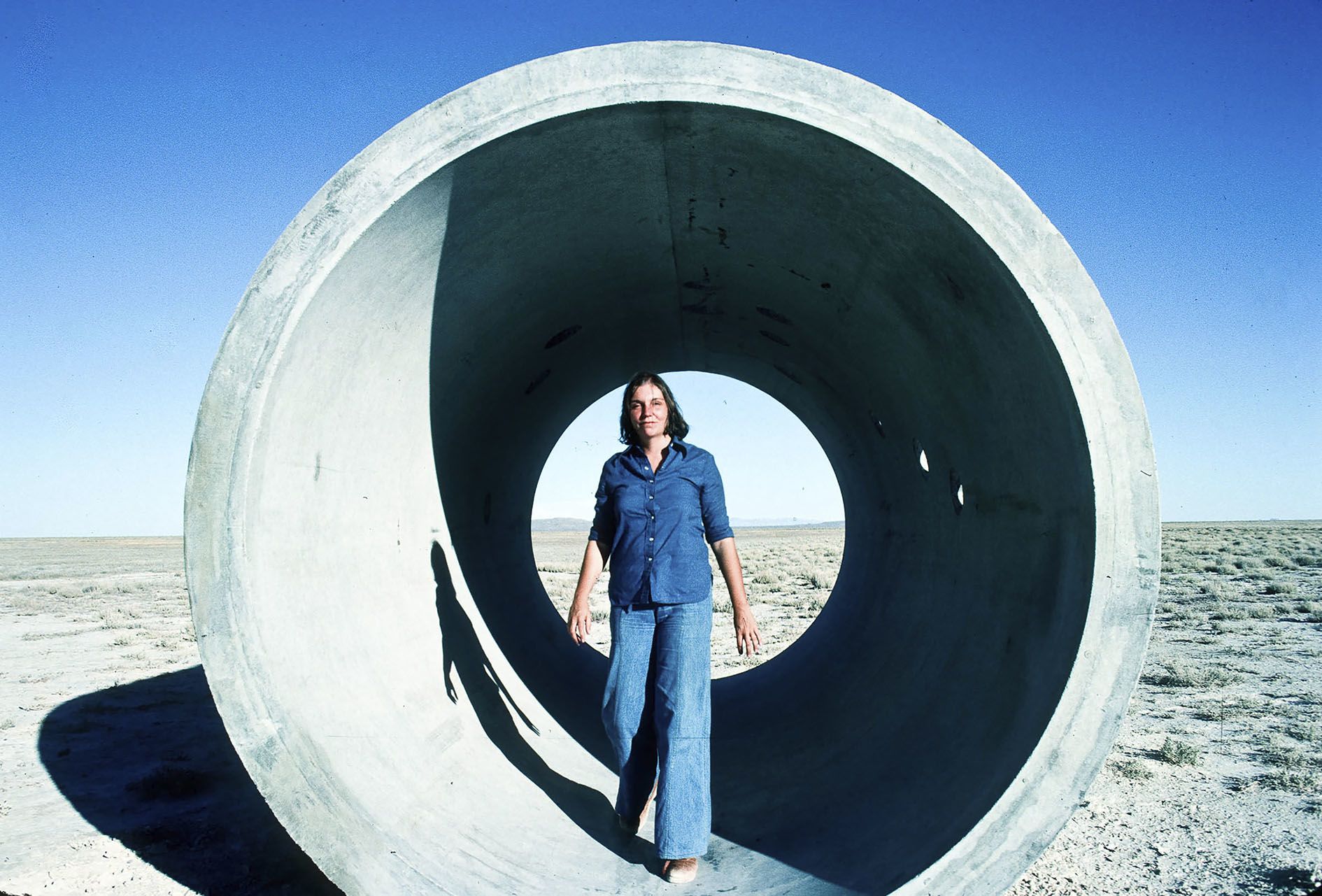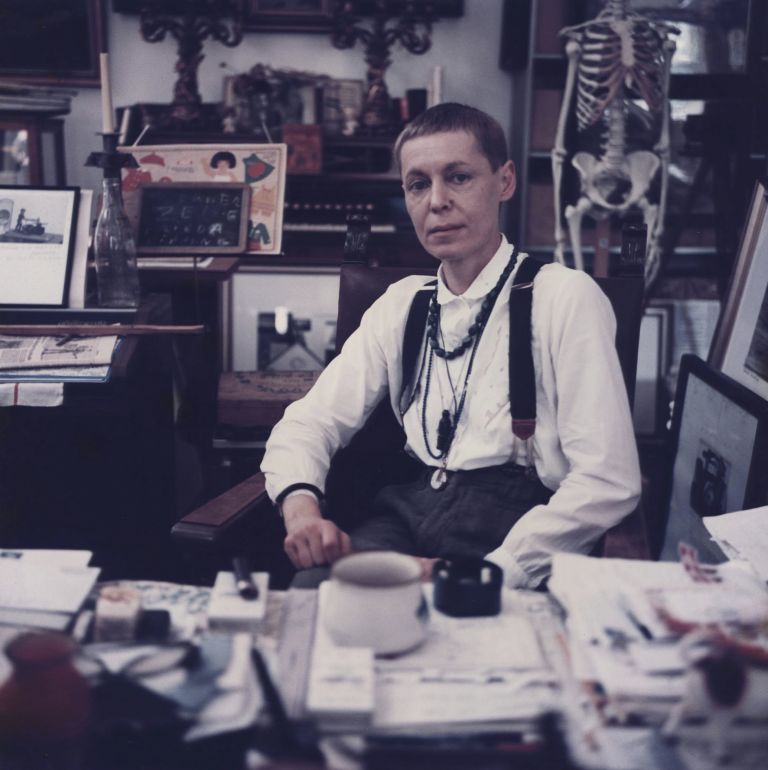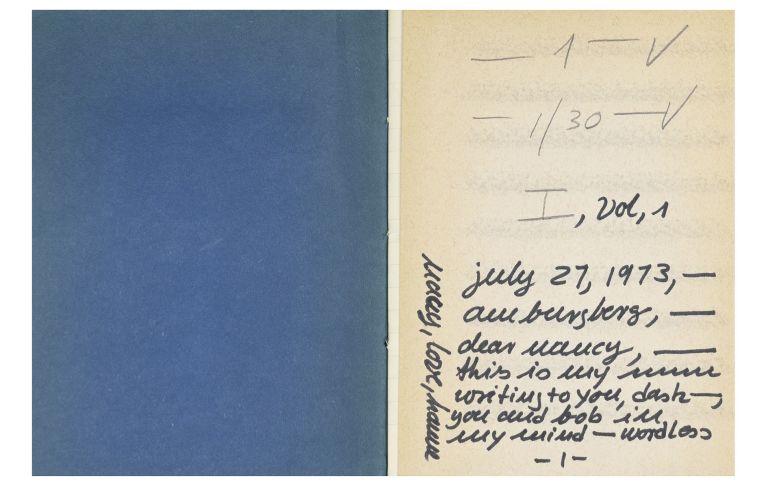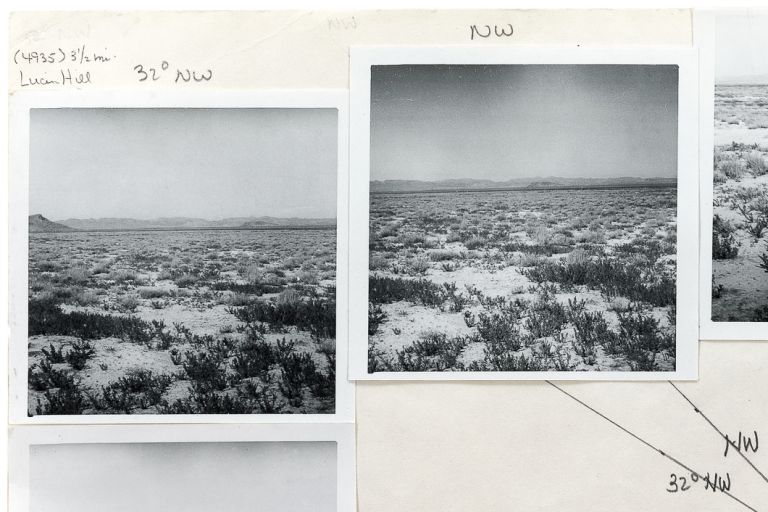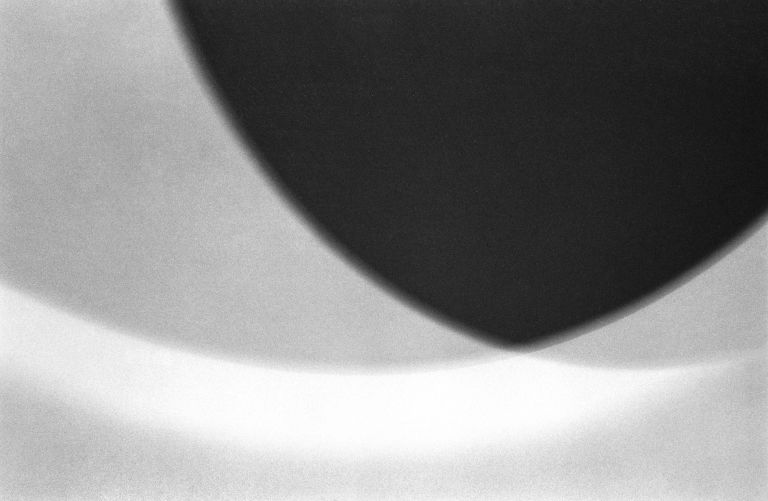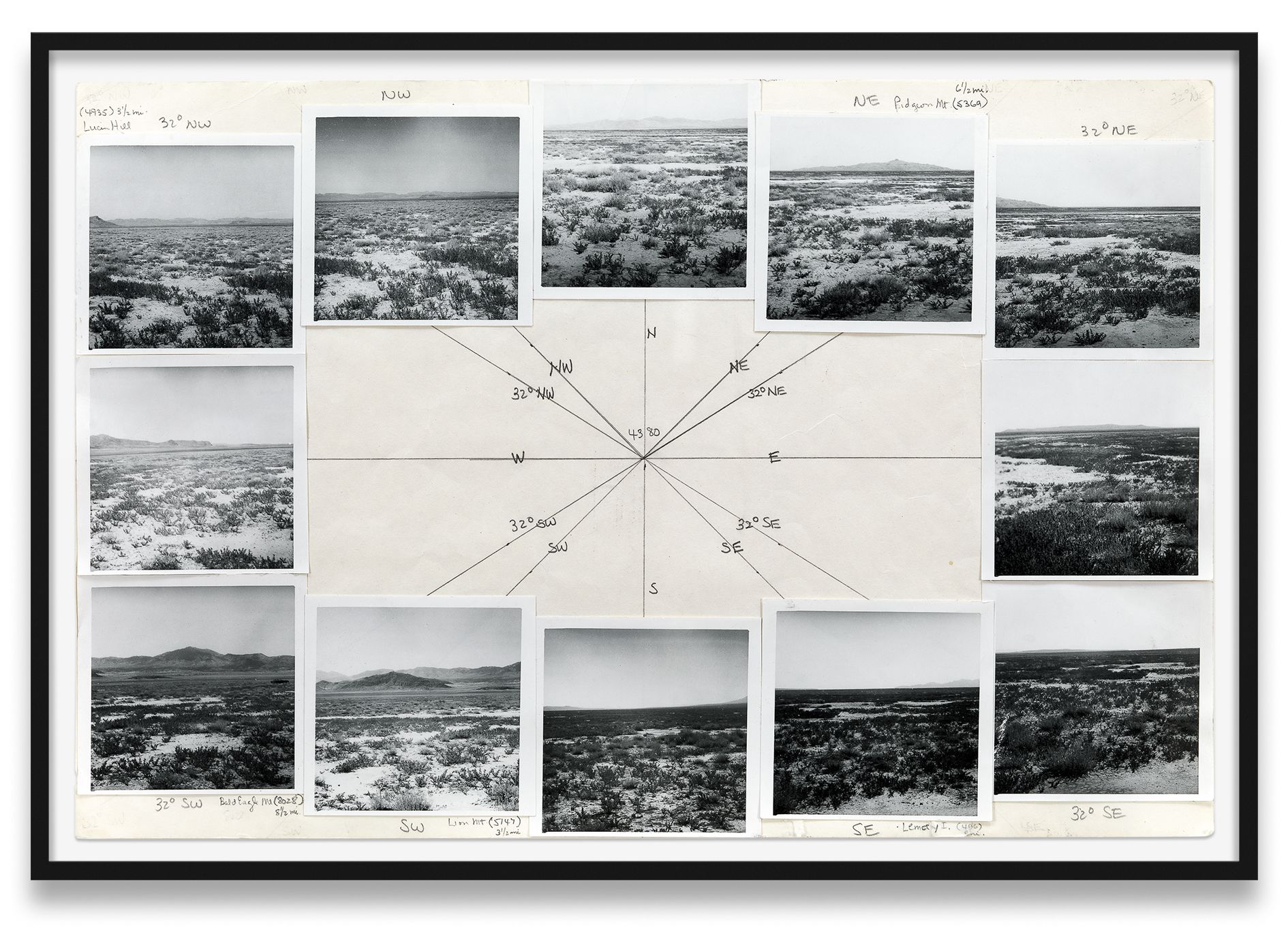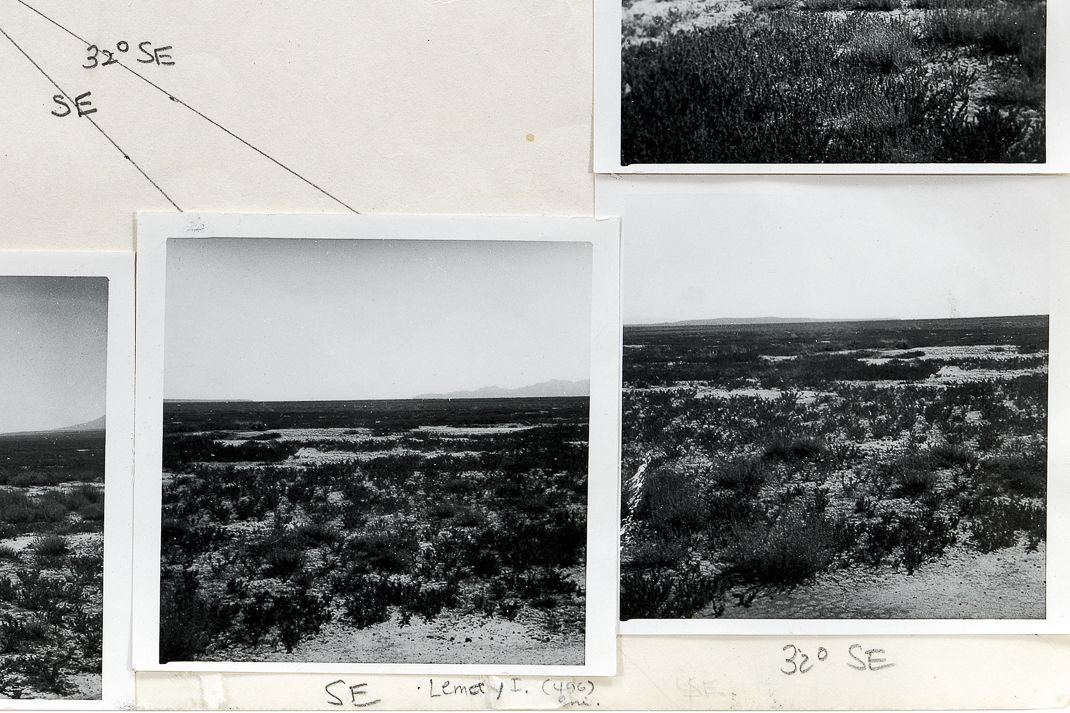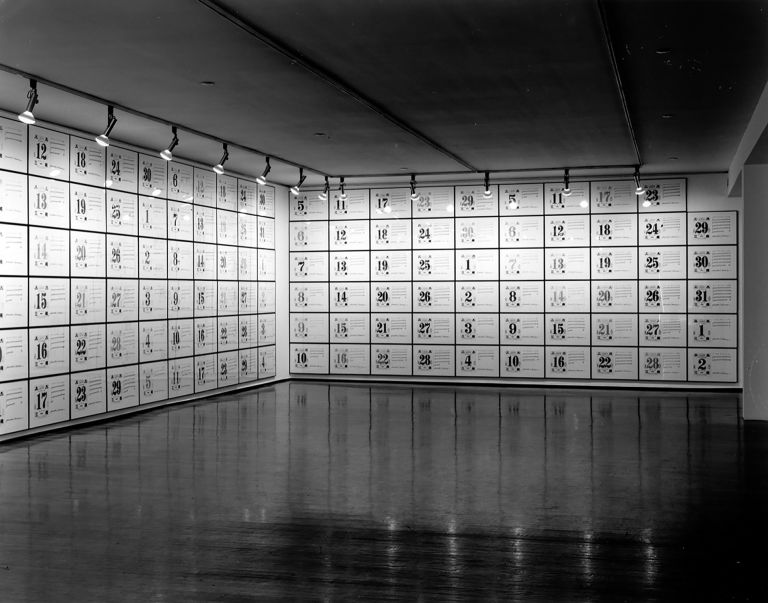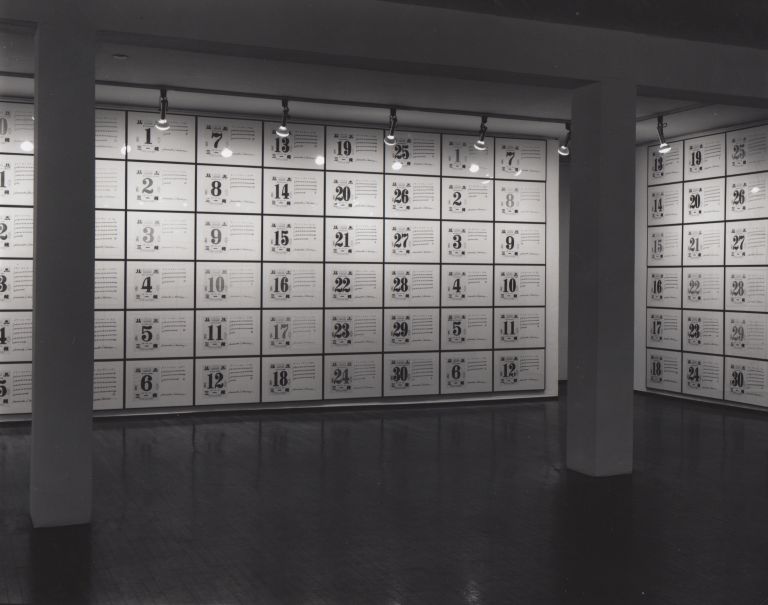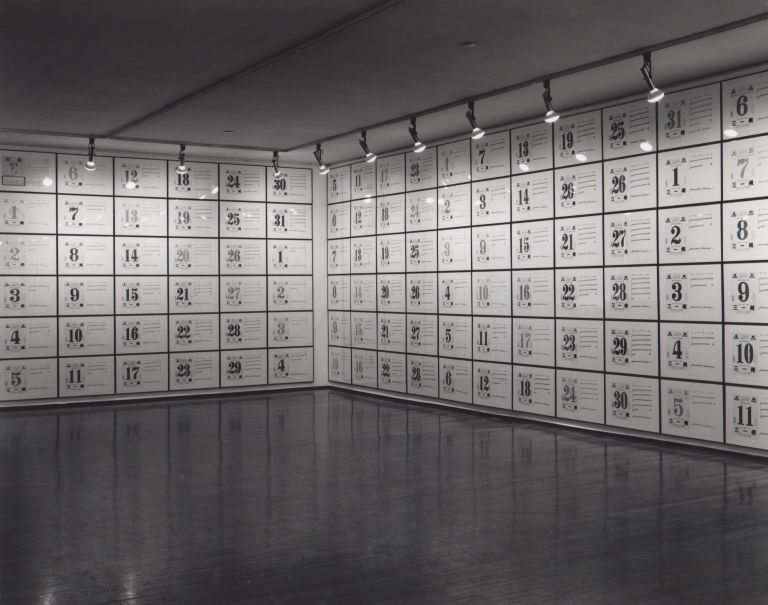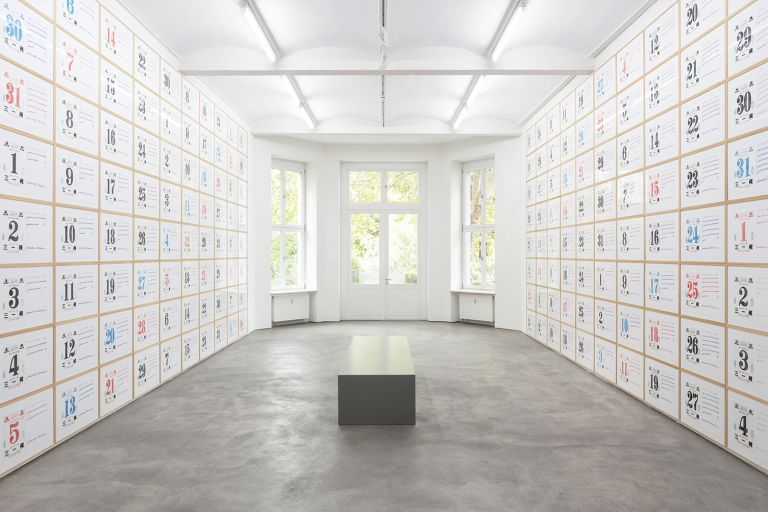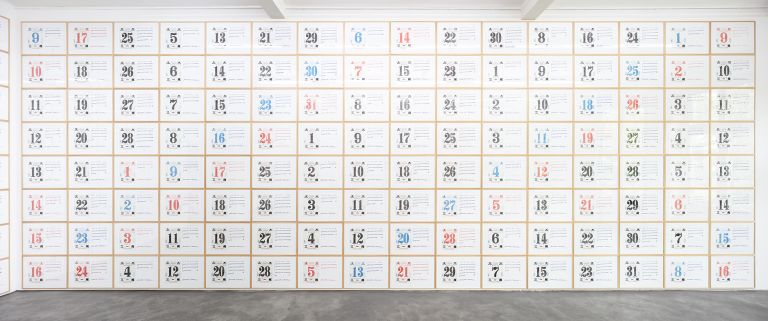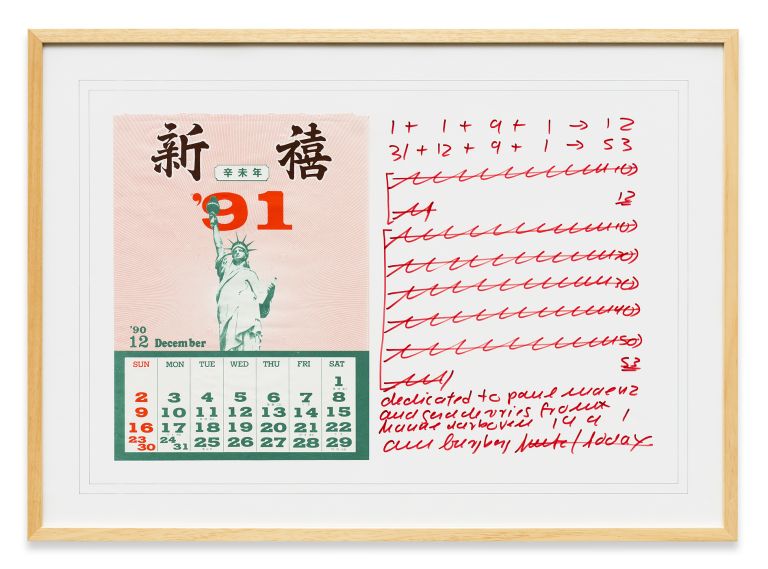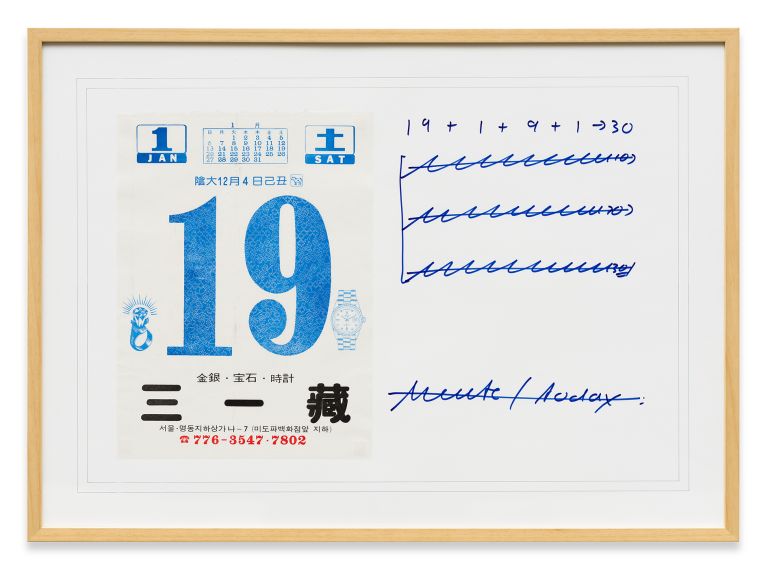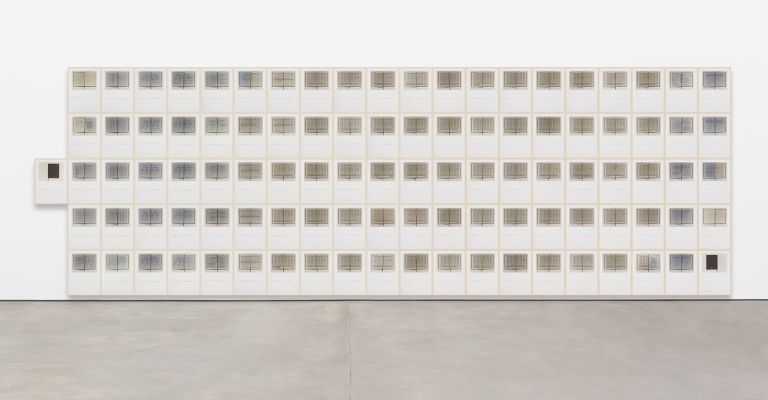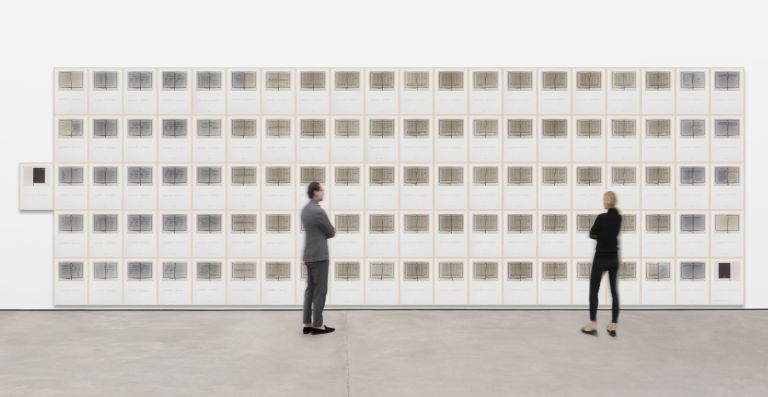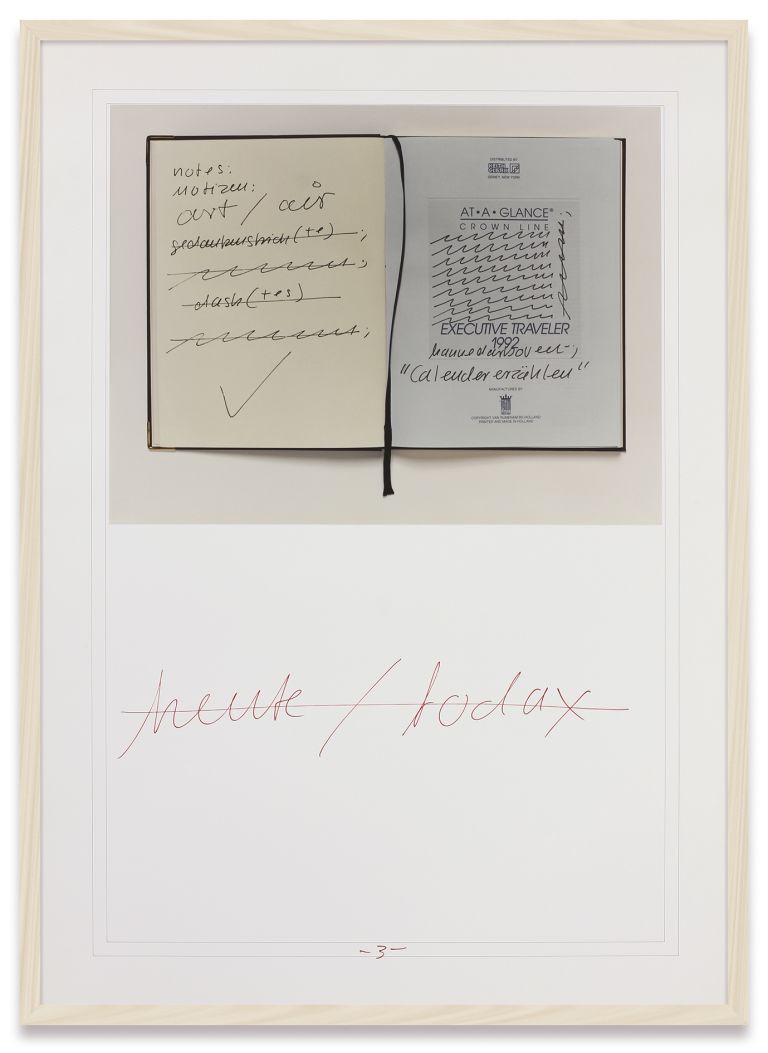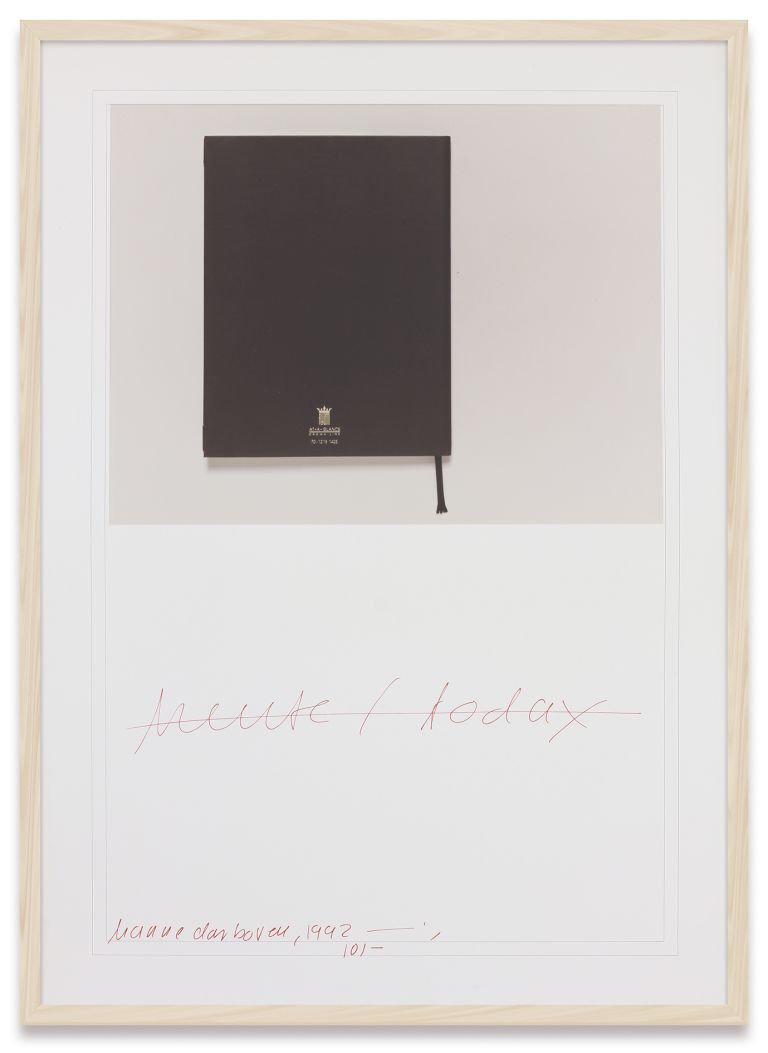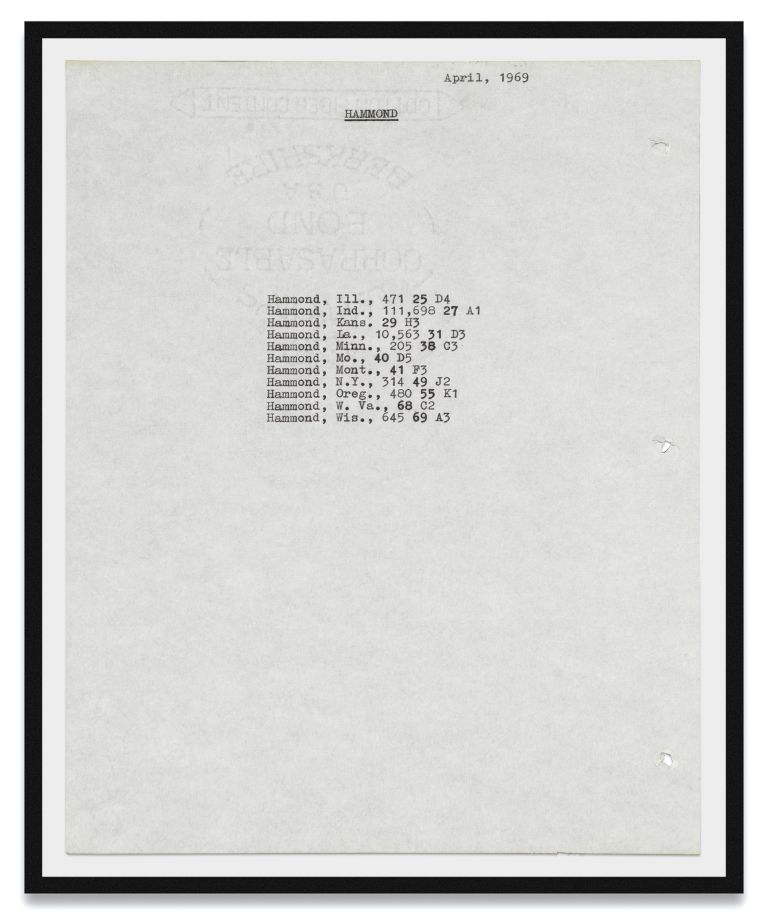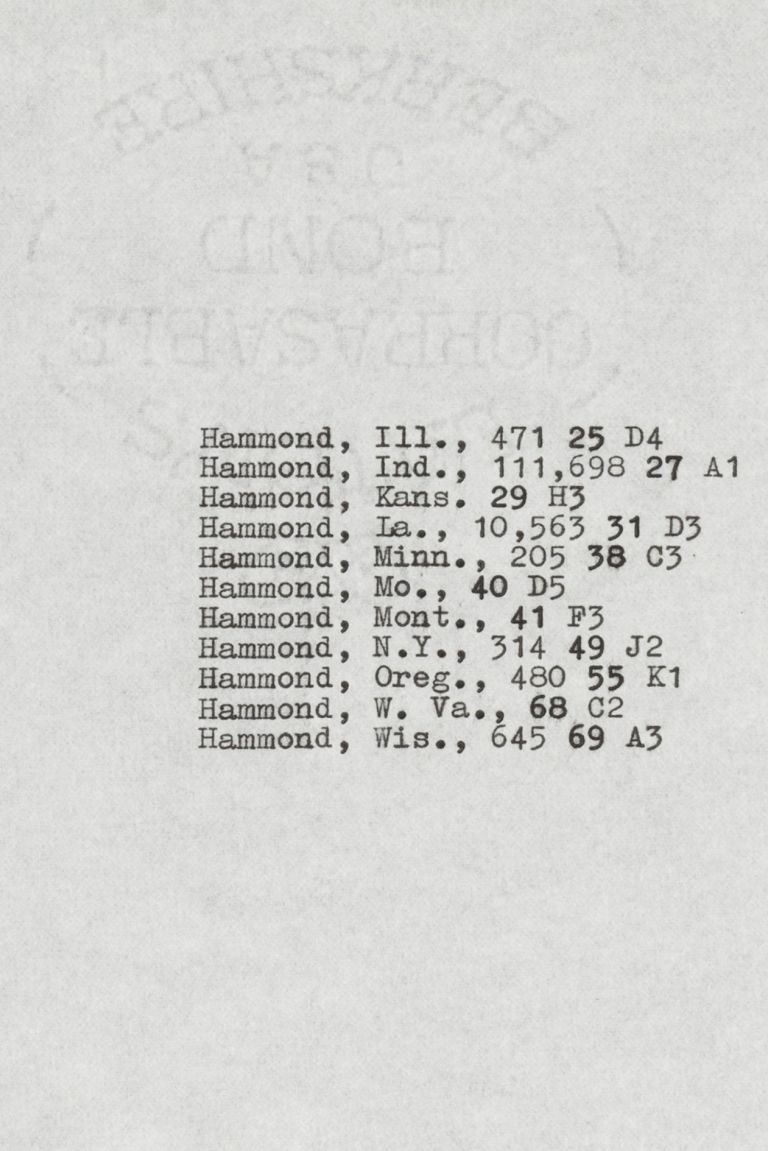Hanne Darboven (1941–2009). Selected solo exhibitions include Kunsthalle Bern (1969), Westfälischer Kunstverein, Muenster (1971), Kunstmuseum Basel (1974), Deichtorhallen Hamburg (1991), Stedelijk Van Abbemuseum, Eindhoven and Musée d’Art moderne de la Ville de Paris (both 1986), Dia Center for the Arts, New York (1996), Staatsgalerie Stuttgart (1997), Hamburger Kunsthalle (1999 and 2006), and Deutsche Guggenheim, Berlin (2006), Museo Nacional Centro de Arte Reina Sofía, Madrid (2014), Bundeskunsthalle, Bonn and Haus der Kunst, Munich (both 2015), Deichtorhallen, Sammlung Falckenberg, Hamburg and Hamburger Bahnhof – Museum für Gegenwart, Berlin (both 2017). Selected group shows include documenta, Kassel (1972, 1977, 1982, 2002), Musée d’Art Moderne de la Ville de Paris (1970, 1981, 1989, 2000, 2006), Solomon R. Guggenheim Museum, New York (1971, 1983), Museum of Modern Art, New York (1976, 2005, 2006, 2007, 2009, 2014, 2017, 2018), National Museum of Art, Osaka (1989), National Gallery of Victoria, Melbourne (1991), The National Gallery of Art, Washington D.C. (1994), Museum of Contemporary Art, Los Angeles (1996), Haus der Kunst, Munich (1997, 2003, 2008), Museum für Moderne Kunst MMK, Frankfurt (2000, 2010), Centre Pompidou, Paris (2002), Hamburger Kunsthalle (2013, 2016), Kunstmuseum Basel (2014), ICA Miami (2017), Westbund Art Museum, Shanghai (2019) and Pinakothek der Moderne, Munich (2020). She represented the Federal Republic of Germany at the 1982 Venice Biennale (along with Gotthard Graubner and Wolfgang Laib).
Artist Page

